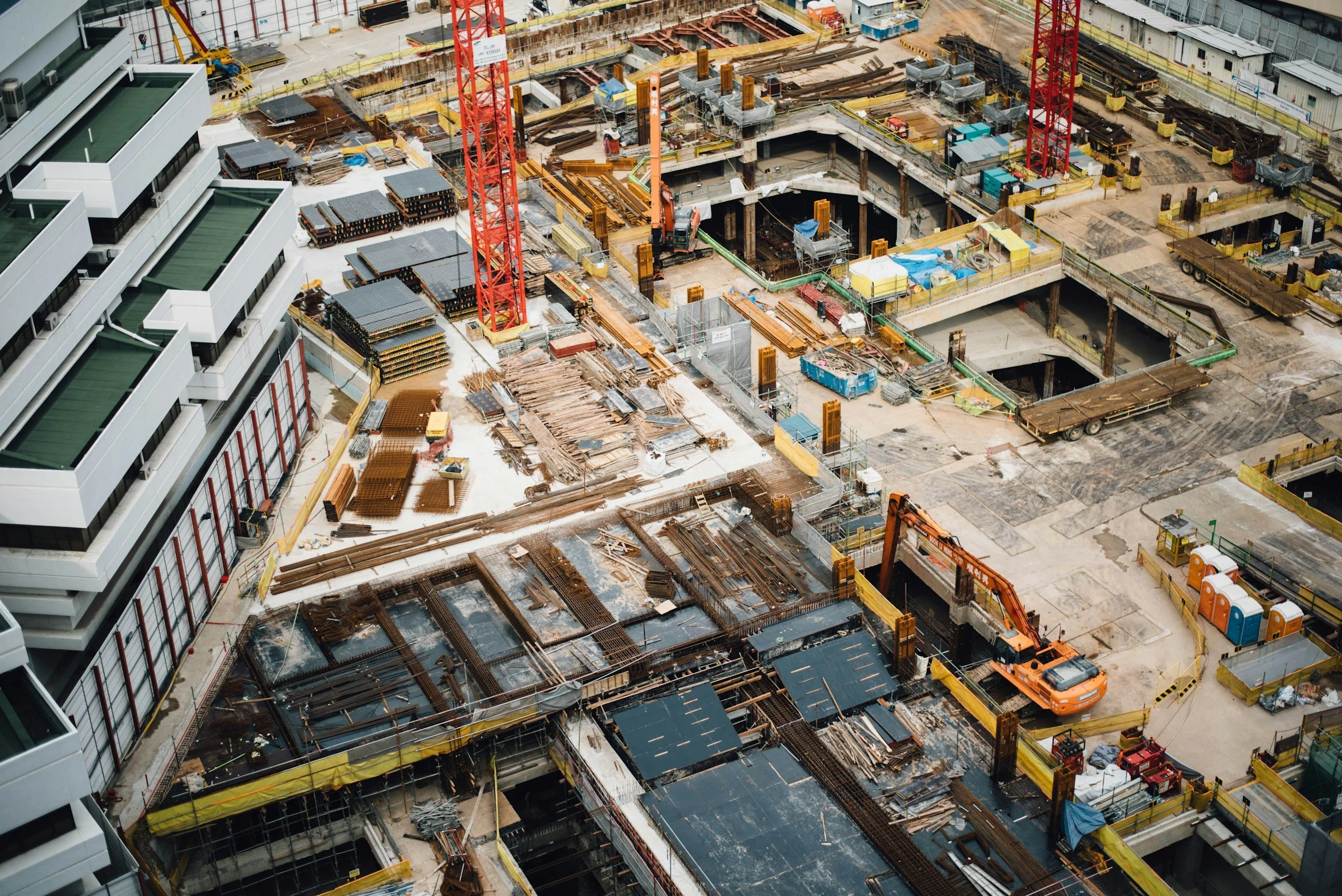
Trainee Construction Manager
This page gives you the real story about what it's like to be a Trainee Construction Manager (with insights from someone who’s actually doing the job).
Your goal: Decide if this sounds interesting enough to explore further, or if it's clearly not for you. Both answers are useful!
If it sounds like something you'd like to know more about, you'll be able to:
📞 Join an ‘Insight Call’ - On online call where you can ask your own questions and hear more about what the job's really like
It will take about 5 minutes to read through - by the end, you'll know if this is worth exploring or if you should look at something else.
What do they do?
A trainee construction manager helps make sure building projects run safely, smoothly, and on time. They work alongside experienced site and project managers, learning how to plan, coordinate, and oversee the work happening on site.
Most of their time is spent checking progress, solving small problems before they become big ones, and keeping track of what materials, people, and equipment are needed next. A big part of the job is making sure the work follows the design and stays on schedule, while meeting strict safety standards.
They don’t do the physical building themselves, that’s handled by trades teams and contractors. The trainee manager’s role is to understand every part of the project and make sure everyone on site knows what needs done, when, and how, so the job comes together as planned.
How much do they earn?
Salaries vary depending on the company, location, and your experience level. Here's a rough guide for commercial analyst roles:
Apprentice (Modern/Graduate Apprenticeship) £18,000 - £25,000 per year You're learning on the job while earning
Uni Graduate £26,000 - £32,000 per year
With Experience £35,000 - £50,000 per year
Senior Level £55,000 - £75,000+ per year
What affects your salary:
The size and type of projects you work on (large infrastructure projects tend to pay more)
Whether you’re based in a city or rural area
The company you work for and how much site responsibility you take on
Additional qualifications, like a civil engineering degree or professional accreditation (e.g. CIOB)
Remember: These are approximate figures for Scotland and can vary. The good news is there's clear progression once you’ve gained experience. You can move into roles like Site Manager, Project Manager, or Contracts Manager, with higher pay and responsibility.
You naturally organised
You're good at keeping track of multiple things and making sure nothing gets forgotten. When you've got deadlines, tasks, and details to manage, you can stay on top of it all without things slipping through the cracks.
You'll Be Successful In This Career If...
You stay calm when things get busy
Construction sites can be fast-paced and unpredictable. You don’t panic when plans change — you focus on what needs sorted first and get it done.
You like being out and about
You want to be where the work is actually happening, not sitting at a desk all day. Seeing a project come together in the real world and being part of making it happen keeps you motivated.
You’re good at working with people
You can get along with people and build relationships with them. You understand that when people respect you and enjoy working with you, projects run more smoothly.
You pay attention to detail
You notice when something looks wrong or doesn’t match the plan. You take pride in getting things right and making sure the work meets the right standards.
The Bottom Line
You’ll enjoy this role if you like working in a fast-moving environment where you can see real progress every day and if you’re the kind of person who notices details and keeps things on track.
Meet Kieran – Trainee Construction Manager at OCS
Kieran works in the energy division, managing construction projects for renewable energy infrastructure including solar and hydropower installations across Scotland.
What the job actually involves
"My job is working with site managers and project managers as support, and sometimes I can lead on certain things on site. I make plans and talk to people on site about health and safety, progress, budget, and design - just making sure it all wraps up and everything's organised, and essentially planning ahead."
Why he likes it
"The experience and the career paths that I can take. There's so many career paths - can go into design, can go into management, and the ceiling really is CEO. Essentially you can make your way up and up and up in this career."
Why he chose this path
"In school I was quite good and I knew I wanted to do something in construction. First year out of school, I did civil engineering full time at uni, didn't really enjoy it, so I ended up dropping out after the first semester. Applied to be an electrician with different companies and FES had a look at my CV, took me in for an interview for this job.”
His best advice
"Having good people skills in important, making sure that when you're talking to them and instructing them to do work, it's clear what you're asking them to do. Try and work with them as much as possible. When you keep them on side and they like you as a manager, I think that's when you get the best out of them."
“What Does A Typical Day Look Like?”
Where you work:
"It's typically all on site. The only exception would be if a job's about to start and we've not actually started on site yet, then it would be in the office preparing and planning. But majority of it is on site for me."
He estimates about 90% of his time is spent on site, with one day every two weeks in the office.
What you're actually doing:
"I'm working within the energy division on solar, hydropower - at the moment we're on a site where we're doing solar canopies for Scottish Water."
"The sort of things I look at are health and safety, progress, budget, and design - just making sure it all wraps up and everything's organised, and essentially planning ahead."
Breaking that down more specifically:
Checking that work is being done safely and matches the design
Talking with site teams to review progress and next steps
Keeping track of materials, deliveries, and equipment
Monitoring budgets and schedules
Reporting issues to project or site managers
Helping plan what needs to happen next on site
Visiting different projects when needed to support other teams
The Summary
If you like being organised, solving problems, and seeing real progress each day, this could be a good fit.
Trainee construction managers are needed across many industries - from energy and infrastructure to housing, transport, and major public projects. Once you’ve built up experience, you can progress into roles like Site Manager, Project Manager, or Contracts Manager, with strong salaries and real responsibility.
Sign up for the ‘Insight Call’
A short online session (30 mins) where you can:
Hear from Kieran about the role
Find out what they really do day to day
Ask your own questions about routes in, pay, progression and lifestyle
Decide if you want to explore the role further
Tuesday 9th December at 16:30









